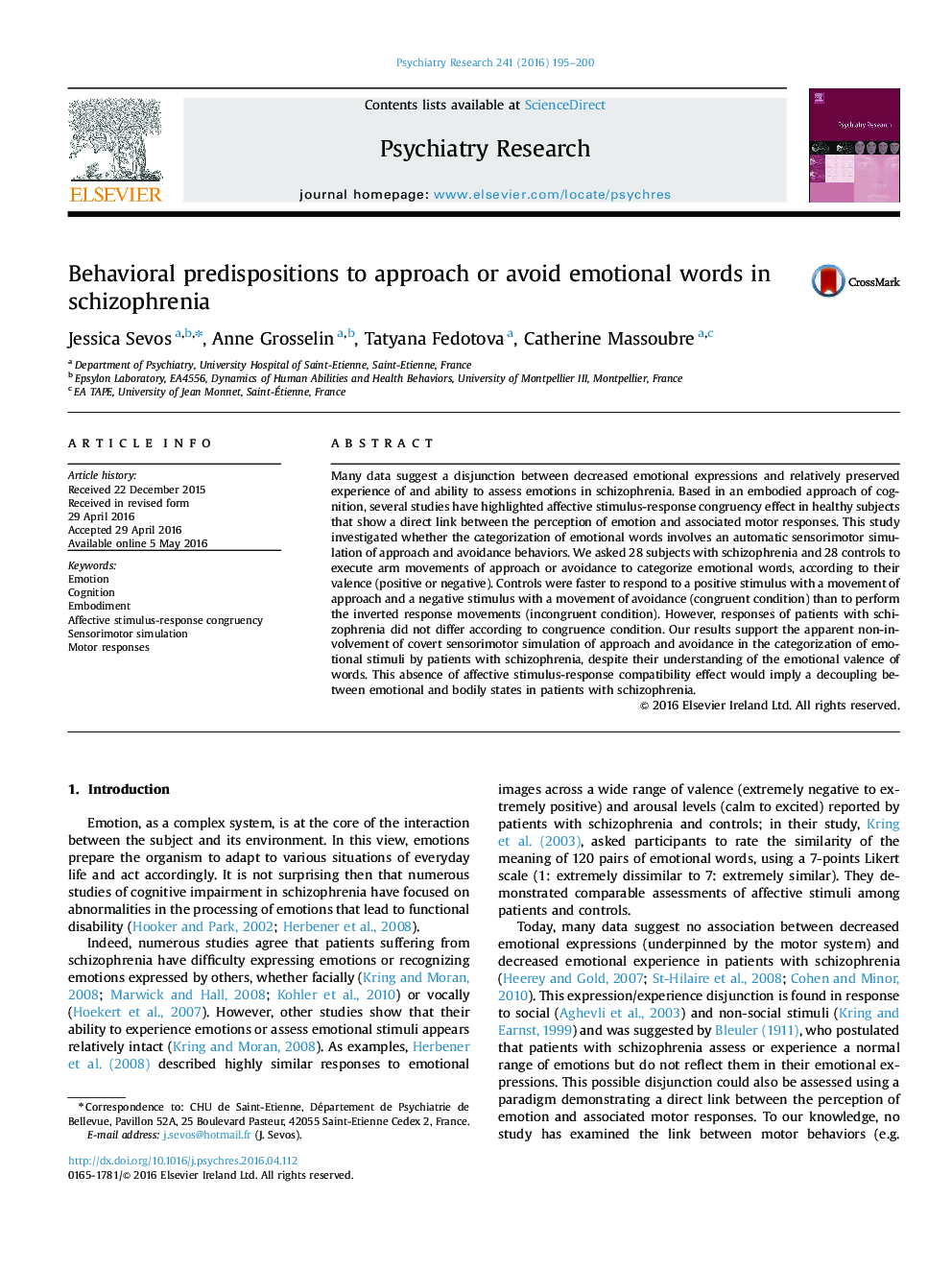| Article ID | Journal | Published Year | Pages | File Type |
|---|---|---|---|---|
| 6813102 | Psychiatry Research | 2016 | 6 Pages |
Abstract
Many data suggest a disjunction between decreased emotional expressions and relatively preserved experience of and ability to assess emotions in schizophrenia. Based in an embodied approach of cognition, several studies have highlighted affective stimulus-response congruency effect in healthy subjects that show a direct link between the perception of emotion and associated motor responses. This study investigated whether the categorization of emotional words involves an automatic sensorimotor simulation of approach and avoidance behaviors. We asked 28 subjects with schizophrenia and 28 controls to execute arm movements of approach or avoidance to categorize emotional words, according to their valence (positive or negative). Controls were faster to respond to a positive stimulus with a movement of approach and a negative stimulus with a movement of avoidance (congruent condition) than to perform the inverted response movements (incongruent condition). However, responses of patients with schizophrenia did not differ according to congruence condition. Our results support the apparent non-involvement of covert sensorimotor simulation of approach and avoidance in the categorization of emotional stimuli by patients with schizophrenia, despite their understanding of the emotional valence of words. This absence of affective stimulus-response compatibility effect would imply a decoupling between emotional and bodily states in patients with schizophrenia.
Related Topics
Life Sciences
Neuroscience
Biological Psychiatry
Authors
Jessica Sevos, Anne Grosselin, Tatyana Fedotova, Catherine Massoubre,
